
Éric Zemmour on the Suicide of France
By Guillaume Durocher
Ex: http://www.counter-currents.com
Éric Zemmour
Le Suicide français
Paris: Albin Michel, 2014
I approached Éric Zemmour’s door-stopper of a book, Le Suicide français, with some trepidation. I had not always been impressed with his previous work, he is after all one of “the System’s” journalists, and Alain Soral had spoken ill of it. My fears were for the most part unfounded: This is a very worthwhile book, indeed remarkably so for one promoted by mainstream media, notwithstanding its flaws, as we shall see.
Le Suicide is a chronicle of the gradual disintegration of France both as a nation and a state from the death of General Charles de Gaulle in 1970 to the present day. The culprits? The end of patriarchy, the rise of feminism, individualism, multiculturalism, globalized capitalism, European integration, and borderlessness in all spheres. Amazingly for a mainstream publication, the book explicitly highlights the contributions of Left-wing and ethnocentric Jews to this process, with full chapters on SOS Racisme’s Judeo-Trotskyite character, the tribal activism of the official Jewish lobby,[1] Bernard-Henri Lévy’s representing “the ruling ideology for dummies”[2] (19), and “the rise of the Shoah as the official religion of the French Republic” (383).
I was frankly very impressed that Zemmour would go so far in criticizing Jewish ethnocentrism and activism in his account,[3] this strikes me as going far beyond what your typical “neoconservative” fare.[4] No doubt he gets away with more than others would because he is a Sephardic Jew, nonetheless, his explicit positions on Jews and Afro-Muslims remain rather risqué for a mainstream career. Indeed, he was widely attacked upon the book’s release for defending the Vichy Regime’s policy of protecting French Jews over foreign ones (he estimates 90% of French Jews survived the war) and was fired by i>Télé from one of his pundit jobs when comments he gave to the Italian newspaper Corriere della Sera were interpreted as calling for the expulsion of all Muslims.
The book benefited from substantial media coverage, with Zemmour being repeatedly invited to various talk shows. The interviewers’ questions were often hostile but, were he really beyond the pale, they would not have given him such publicity in the first place. Le Suicide sold 400,000 copies between October and December 2014.
Le Suicide is rather similar in its fears and presentation to Thilo Sarrazin’s Deutschland schafft sich ab, which also examines the slow suicide of a great European nation. Deutschland is the work of an erudite German professor who, with all the dry rigor of a post-Prussian central banker familiar with Anglo-American studies of human biodiversity, steadily makes his case with a barrage of socio-economic data. Le Suicide in contrast is the latest polemic of a conservative journalist-turned-pundit, a professional provocateur (Zemmour has been called a “troll” more than once), each chapter presenting a colorful vignette of a key cultural, economic, social, political, or even sports moment in France’s decline. Zemmour’s work has the great merit of taking a holistic approach to national decline, exploring the complex mix of underlying causes and how they into the wider world and individual experience.[5] In doing this, he draws from an impressive array of mainstream and alternative sources (mostly French, naturellement, but also a few Anglophones and Europeans). Though he does not cite Soral, many of Zemmour’s points on feminism and Balkanization are very close (the two men apparently correspond regularly).
The book is of course not perfect. Zemmour is constantly using various rhetorical devices to exaggerate for effect: flowery metaphors, superficial analogies, pseudo-paradoxes. While certainly evocative in a single chapter – and perhaps more suited to the brevity of an op-ed or the spectacle of radio or television, where he excels – the repetitive use of such wordplay grows tiresome over time;[6] especially in a 527-page book. His rhetorical prowess is certainly impressive on occasion, as when he describes the Green movement:
Environmental politics would become this curious far-left movement which only speaks to the urban petty bourgeois; despising globalization and hating borders; advocates of local productions but with foreigners freely arriving from the entire world; defenders of the precautionary principle for nature (nuclear, GMOs, shale gas) but not for man (gay marriage, adoption by gay couples), nor for the nation (massive immigration, the right to vote and even of candidature for foreigners) [. . .]. (79-80)
Zemmour presents the most controversial points in indirect ways, using conditional or speculative qualifiers, or putting them in the mouths of others, especially concerning Jewish power (François Mitterrand and Jean-Marie Le Pen said there was a “Jewish lobby,” Muslims are anti-Semitic, Richelieu and De Gaulle were opposed to any “State within the State,” [259] etc.). This is a well-advised technique of plausible deniability. Soral has called Zemmour “a wily right-winger,” no doubt Savitri Devi would have classed him among the “clever Levantines.”
 The book was often promoted by the media alongside Michel Houellebecq’s Soumission,[7] and indeed the two works share a number of themes, namely the negative effects of individualism, sexual liberation, and Jewish influence upon French society. The main difference is in the treatment of Islam: Whereas Houellebecq sees still-patriarchal Muslims as an opportunity to re-inject the French with values of Tradition, for Zemmour Islamization is an exclusively negative phenomenon.
The book was often promoted by the media alongside Michel Houellebecq’s Soumission,[7] and indeed the two works share a number of themes, namely the negative effects of individualism, sexual liberation, and Jewish influence upon French society. The main difference is in the treatment of Islam: Whereas Houellebecq sees still-patriarchal Muslims as an opportunity to re-inject the French with values of Tradition, for Zemmour Islamization is an exclusively negative phenomenon.
Zemmour advocates, in effect, a return to the virtues of the Gaullist era, with a patriarchal, sovereign, non-aligned, state capitalist France without immigration; a defensible position, not dissimilar to that of a Patrick Buchanan in America. But how does one get from here to there? He knows full well the clock cannot and should not be turned back (we’d just end up back where we are).[8]
Here the book itself is rather silent. Indeed, too often Zemmour excessively idealizes the past or paints an unduly dark picture of the present. The trends are bad, of course, but everything has a silver lining. When Zemmour presents a purely negative picture of the Internet (218), because of its encouraging atomization and creating massive transnational IT giants, the points are well-taken, but it seems to me the net effect remains enormously positive in economic, cultural, and even social terms (such as enabling self-employment).
Zemmour then provides no explicit way out. He is asking a question, presenting a diagnostic. But I believe, similarly to Houellebecq, certain conclusions can be drawn from Le Suicide as a publishing event and Éric Zemmour as a political actor, which I think may also help to explain why a Sephardic Jew has become mainstream France’s leading advocate of “nationalism,” and why the media are promoting his particular brand of it.
Who is Éric Zemmour?
Zemmour’s biography helps to explain his personal positions and his place in the French politico-media system. He was born in 1958 in the Parisian département[9] of Seine-Saint-Denis to North African Jewish immigrants fleeing the Algerian War. His forefathers, along with 35,000 other Algerian Jews, were given full French citizenship in 1870 with the Crémieux Decree.[10] Seine-Saint-Denis has since become the most thoroughly Afro-Islamized département in the country, with considerable associated poverty and criminality.
While Zemmour’s father was an ambulance technician, the son studied at Sciences Po Paris, an elite grande école, and became a journalist for various media. He would go on to work as a political reporter for the conservative Figaro newspaper and a radio and TV pundit, where he would be (in)famous for his politically incorrect tirades (“most drug dealers are Black or Arab,” “If there were no races, there would also be no métissage [race-mixing]”).
Today Zemmour co-hosts a talk show on regional TV station Paris Première, has a morning op-ed on RTL radio, and a column for Figaro Magazine. He is now the most famous and influential nationalist voice allowed on French television, all but calling to vote for the Front National (although he has always been coy on this, claiming to not remember who he voted for in the 2012 presidential elections, the “democratic” French regime has yet to allow a single French pundit openly back the FN and still work in mainstream media, a party representing 10-25% of the vote). No doubt the diversity of his jobs, along with his book sales, provide him with some economic leeway to be more politically incorrect than most.
Zemmour is then a typical example of Jewish upward social mobility in post-Enlightenment, meritocratic Western societies, once secularization had made the Jewish/Christian divide apparently less salient. He and his family owe everything, from its being granted French citizenship in majority-Muslim Algeria, to the French Republic and nation. Zemmour seems to ask: Was France not the first nation to emancipate the Jews during the French Revolution? Did not Napoleon’s code civile not free all Jews from their ghettos wherever the French armies triumphed? Today, Paris is ringed by sullen, impoverished, crime-prone Afro-Islamic neighborhoods, and in particular his birthplace of Seine-Saint-Denis. The same people who, sixty years ago, a blink of an eye historically, kicked his parents out of Algeria, along with 1 million European settlers. Le Suicide is dedicated “to my father.”
As I have suggested elsewhere, I believe Zemmour wants to save France for the same reasons Ron Unz wants to save America [2]: because the end of Western civilization would be a tragedy for all, including the Jews. His audience is as much France’s elites, Jewish and indigenous,[11] as the general public, pleading: Why destroy France, where else have we been allowed to prosper so? Are we not “as happy as God in France”?[12] Do you really want to put French Jewry at the mercy of an Afro-Islamic majority, with Jewish children already bullied in some neighborhoods and Jews being periodically murdered by Muslim chavs-turned-jihadis?
The fact that Zemmour has been promoted by the politico-media system shows, I believe, that there is genuine intra-elite debate [3] in France on whether the French Republic and nation should be preserved or whether the current program of slow by steady abolition should be pursued to its logical conclusion.[13] He is the symbol of a possible change of course in the regime. Concretely, this would pass by the reconciliation of the ruling establishment with the Front National, which might then come to power alone or as part of a coalition, an action which would be useful insofar as it restored French politico-economic sovereignty, halted and then reversed migratory flows, and reinstituted freedom of speech on ethnic and historical questions. Such gains would no doubt be helpful in the demographic and cultural struggle, and gradual reconquest of our sovereignty and cohesion; were the FN to achieve power without them, this would be a sign of selling out to the regime.[14]
This strategy will no doubt strike many as too conservative or indeed foolhardy. Zemmour does not really explain how the forces of disintegration which destroyed his beloved 1960s France can be overcome, saying: “This enlightened conservatism was no doubt too subtle to resist the destructive folly of the age” (113). No doubt far more radical thinking and novel action will be eventually required.
Zemmour on Jews
Jews are an enormous presence in Le Suicide – between the dedicated chapters and references under other headings, perhaps 100 pages deal with the community’s members and organizations. This is suggestive of the enormous presence of Jews among France’s cultural, economic, legal, and political elites.[15]
Zemmour wants French Jews to return to the republican pact, to become what he calls “Israelites,” what Winston Churchill called “national Jews.” He quotes the Count of Clermont-Tonnerre’s argument for Jewish emancipation before the Constituent Assembly in 1789:
We must refuse everything to the Jews as a nation and accord everything to the Jews as individuals; they must form neither a political body nor an order within the State; they must individually be citizens. But, I will be told, they do not want to be citizens. Well then! If they do not want to be citizens, let them say it, let us banish them. It is loathsome that there be within the State a society of non-citizens and a nation within the nation. (259)
This meritocratic promise is why Zemmour is so infatuated with republican and even Napoleonic France[16]: Had the French Republic or the French Empire been stronger, there would have been no Third Reich and no persecution of the Jews of Europe.[17] Zemmour accuses organized Jewry – notably the CRIF – of betraying this promise. In his words they have “murdered Napoleon” and repeatedly refers to them as a “State within the State.”
Zemmour repeatedly describes left-wing Jewish agitation against the native French:
In the 1970s, the hatred of France was reinforced with a hatred of the French [. . .]. In this politico-historical context – [Robert] Paxton’s work [on Vichy], The Sorrow and the Pity, Night and Fog, etc. – inglorious memories return, of the war, of collaboration, of the extermination of the Jews. The youth, which did not experience the Occupation, ignorantly condemned the behavior of their fathers, guilty at once of having lost the war, collaborated, and handed over Jews. The leaders of leftist micro-groups [groupuscules] were mostly Jews, sons of those Ashkenazis who had been chased out, or handed over to the Germans, because they were not French citizens. [. . .]
But this youth – more imbued with Judeo-Christianity than they would care to admit – cannot mourn the loss of all millenialism, nor of all salvatory religion. The immigrant would be their new Christ, their new chosen people. His suffering would be that of the Jewish people; his oppressor – the French people of course – would be identified together in an implacable curse. (150)
He condemns left-wing Jews’ scapegoating of nationalists for various events, such as when a pro-Palestinian Arab bombed the Copernic Street synagogue in 1980:
Movements of young “anti-fascist and anti-racist” Jews hurried to demonstrate in the streets of the capital; others pillaged the Parisian head office of the European Nationalist Fasces, or fought with “neo-nazis” [. . .]; gunfire was shot against the Œuvre française office [. . .].[18] (183)
Zemmour’s account is not ideal. He recognizes the issue of dual loyalty while seeming to suggest Western Jews have no agency in the matter, citing “the effective action of the Israeli State’s PR, which had closely associated the Jewish communities of the entire world – and particularly those of the United States and France – to its destiny” (186). He wants to save our “civilization, Greco-Roman and Judeo-Christian” (523). He curiously described contemporary “French self-hatred” as modeled on nineteenth-century Jewish self-hatred (506). He describes the tensions between native French and African immigrants as a return of “the ancient conflict which we had thought long past between nomads and sedentaries,” a very strange choice of words, since after all those immigrants are generally looking to permanently settle (211).
Zemmour’s narrative on the relationship between post-revolutionary France and Jews is not entirely persuasive, but has a significant degree of truth. He recognizes that the nineteenth century Universal Israelite Alliance engaged in a “parallel diplomacy,” seeking to influence the French state in the sole interests of foreign Jewish communities. Zemmour appears to consider this a legitimate anti-Semitic grievance. Many French Jews did sincerely uphold French republicanism and some even died for it, like Marc Bloch. Jewish ethnocentrism has clearly become more overt and explicit since the 1960s.
Zemmour is then the strange successor to that other Jewish intellectual associated with France’s conservative establishment, Raymond Aron, though they radically differ in style.[19] The ever-hyperbolic and metaphorical Zemmour fears, as Aron did towards the end of his life 30 years ago, that the rise in explicit Jewish ethnocentrism, in particular since the 1967 Six Day War, will have adverse consequences. While the measured, conciliatory Aron was pessimistic on immigration and European decadence, Zemmour wants immigration ended and multiculturalism abolished, decadence arrested.
 But there is the same problem with Zemmour’s civic nationalism as with Aron’s or Soral’s: It only works in good times and is inherently unstable, just waiting to fall into debilitating contradictions or outright collapse as soon as any group’s ethnocentrism rises, causing other groups’ ethnocentrism to rise in retaliation and the usual escalation through mimetic rivalry. When the mass of society is ethnically divided, this leads to bloody partition. When a minority ethnic group is influential at the top of society, this leads a country’s elites to be hostile to majority-group ethnocentrism and supportive of the minority group’s (e.g. Israel). A multiethnic country is an accident waiting to happen.[20]
But there is the same problem with Zemmour’s civic nationalism as with Aron’s or Soral’s: It only works in good times and is inherently unstable, just waiting to fall into debilitating contradictions or outright collapse as soon as any group’s ethnocentrism rises, causing other groups’ ethnocentrism to rise in retaliation and the usual escalation through mimetic rivalry. When the mass of society is ethnically divided, this leads to bloody partition. When a minority ethnic group is influential at the top of society, this leads a country’s elites to be hostile to majority-group ethnocentrism and supportive of the minority group’s (e.g. Israel). A multiethnic country is an accident waiting to happen.[20]
Notes
1. The Representative Council of Jewish Institutions of France (CRIF).
2. Given Lévy’s notorious ethnocentrism and Francophobia, this is in effect admitting that France is dominated by a MacDonaldian culture of critique. Kevin B. MacDonald, The Culture of Critique (First Books, 2002). Zemmour summarizes Lévy’s thesis thus: “Love of France is therefore the extermination of the Jews” (193) and accuses him of “alternating between pacifism on French TV shows, and nationalist pride in Jerusalem” (195).
3. Indeed, I thought some of these texts were so noteworthy they merited translation into English. Éric Zemmour, “The Rise of the Shoah as the Official Religion of the French Republic,” The Occidental Observer, May 12, 2015 http://www.theoccidentalobserver.net/2015/05/eric-zemmour-the-rise-of-the-shoah-as-the-official-religion-of-the-french-republic/ [4] Zemmour, “SOS Racisme: A Case Study in Anti-Nationalist Jewish Activism,” The Occidental Observer, May 14, 2014. http://www.theoccidentalobserver.net/2015/05/eric-zemmour-sos-racisme-a-case-study-in-anti-nationalist-jewish-activism/ [5]
4. Although, admittedly, I may not be in a good position to compare, as I have always been repulsed by, and rarely expose myself to, such brain poison.
5. The following extracts from Zemmour’s conclusion give a sense of his style and argument:
De Gaulle failed. Forty years after his death, his masterpiece is in ruins. [. . .]
For the most part our elites have abdicated. Our political elites have abandoned national sovereignty and independence in the name of the great European project. Our economic elites betray the interests of France in the name of globalization and a necessary internationalization. Over half the companies of the French stock exchange are owned by foreign funds. Industrial France no longer belongs to France. The French stock exchange has not welcomed new companies for 20 years. Bosses are leaving the Hexagon [metropolitan France], following or preceding their children who are studying in London, New York, Montreal, Los Angeles, establishing their companies in England, the Netherlands, America, Singapore or Shanghai, as though their future growth only depended on emerging countries, as though their past growth owed nothing to the dear old country.
Our media elites justify and exalt this great abdication, admonish and track down rare dissenters, and unleash a continuous flow of guilt-inducing moralism upon the public mind.
Their common objective is to bind France to the Western ensemble which will unite against the new threat from the East, in particular China. The transatlantic free trade agreement [TAFTA] has as its goal, in the words of the American negotiators, to build “an economic NATO.” This agreement would subject the European economy to U.S. health, technical, environmental, legal, and cultural norms; this would definitively spell the end of a coherent and independent Europe. (517-519)
He goes on:
For them [French elites], the cultural coherence which our people had been able to preserve, despite significant immigration in the nineteenth century, is suspect [. . .]. The future of our dear Hexagon lies between a vast touristic amusement park and Islamic fortresses, between Disneyland and Kosovo. The State is no more than an empty shell which has conserved only the worst Gaullian particularities (elite arrogance), without having the remarkable effectiveness. We would need the firm hand of a Colbert or a Pompidou for our lost industries to be reborn from their ashes. We would need an implacable Richelieu to relentlessly fight “the State within the State” [a thinly-veiled to organized Jewry, among others] and the “foreigners’ parties” [partis de l’étranger, serving foreign power, rather than immigrants] to destroy the “Islamic La Rochelles” which are being built on our territory; but we give way to the internal enemy which we have allowed to prosper, and we ally with foreign powers who feed it with their subsidies and religious propaganda – the Gulf Arab princes have replaced the Duke of Buckingham [. . .].
The anti-racist and multiculturalist ideology of globalization will be to the twenty-first century what nationalism was to the nineteenth and totalitarianism was to the twentieth: a warmongering messianic progressivism; we will have transferred war between nations to war within nations [. . .]
It’s the entire Occident which is suffering this gigantic movement of peoples, losing bearings, identities and certainties. [. . .]
France is dying, France is dead.
Our political, economic, administrative, media, intellectual, and artistic elites are spitting on her grave and trampling on her festering corpse. They draw social and financial gratification from this. All watch, with sarcasm and feigned emotion, the France that is being felled; and write with a bored and disdainful air, “the last pages of the history of France.” (525-7)
This or similar expressions were used by presidents Charles de Gaulle and François Mitterrand. Zemmour quotes De Gaulle after he (temporarily) lost power in 1946: “French decadence began in the middle of the eighteenth century. Since, there have only been occasional resurgences. The last was in 1914. Me, I bluffed, and by bluffing I was able to write the last pages of the history of France.” (24) The journalist Georges-Marc Benhamou reported Mitterrand saying: “I am the last of the great presidents . . . Well, I mean the last in De Gaulle’s tradition. After me, there will not be any more in France . . . Because of Europe . . . Because of globalization.” Georges-Marc Benhamou, Le dernier Mitterrand (Plon: 1996), 145-6.
6. “France is the sick man of Europe” (9, who isn’t sick in Europe?), Europeans’ settlement of America is likened to the Israelites’ flight from Egypt, the 1981 race riots of Vénissieux are termed the French Communists’ “Dien Bien Phu,” etc. Zemmour engages in hyperbolic excess to better condemn: France’s (limited) decentralization in the 1980s meant “the State was decapitated at the top after having been gnawed at from the bottom. The Gulliver inherited from Colbert, Napoleon, De Gaulle was bound, ridiculed, humiliated. Assassinated” (228). An excellent chapter on the difficult subject of European Central Bank President Jean-Claude Trichet begins with a just slightly overdone metaphor. “He was the final sovereign of a European continent which had abolished sovereignty in the name of peace. He was at once the Emperor Charlemagne and the last head of the French State” (483).
7. Guillaume Durocher, “Houellebecq, Islam, & the Jews: A Review of Michel Houellebecq’s Soumission,” Counter-Currents, February 26, 2015. http://www.counter-currents.com/2015/02/michel-houellebecq-soumission/ [6]
8. Zemmour notes that Socialist President François Mitterrand tried briefly to restore a kind of socially progressive nation-statist dirigisme in 1981 but “the economic transformations (abolition of borders within Europe, end of the gold standard, price of oil, etc), but also the decapitation by May 68 of the hierarchical structure which was the backbone of French society, had made this Restoration [. . . ] impossible” (232).
9. County.
10. Named after the Franco-Jewish Justice Minister of the day, Adolphe Crémieux, who incidentally had taken a leading role in more generally organizing Jewish lobbying worldwide, founding the Universal Israelite Alliance in 1860.
11. The argument for the preservation of France is somewhat different for native French elites and oligarchs: Are you really comfortable in a world where only English may be spoken? Are you really comfortable destroying the French Republic and putting your fate in the hands of the ineffectual, unresponsive Eurocracy? Are you and your children really going to be better off when you are reduced to a minority in an Afro-Islamic country?
12. Guillaume Durocher, “‘As Happy as God in France’: The state of French Jewish elites,” The Occidental Quarterly 14, no. 4 (Winter 2014-2015): 41-56. http://www.theoccidentalobserver.net/2014/05/as-happy-as-god-in-france-the-state-of-french-jewish-elites-part-1/ [7]
13. Other rising stars symbolizing this debate include “philosopher” Alain Finkielkraut and pundit Élisabeth Lévy, both of whom are objectively hysterical. Like Zemmour, these two have promoted a certain rehabilitation of French culture and criticism of multiculturalism. Finkielkraut once lamented that the French national football team had become “Black-black-black” (saying it in English, a play on the old multiracial slogan: “black-blanc-beur” [Black-White-Arab]). As such, he could hardly complain if we remark that these three mainstream “nationalist” voices form a “Jew-Jew-Jew” trio. Élisabeth Lévy once famously attacked a Black activist, who demanded more people of color on television, saying: “If there is aren’t enough of X, then what is there ‘too much’ of, exactly?” As it happens, if Jews in the French media were gracious enough to hand their positions to Blacks and Muslims in line with their share of population (15-20%), they would still be the most over-represented group. No other (pseudo-)nationalist pundits are allowed on French television. One would indeed find it strange if, in Israel, only Christians were allowed by the media to present an apology of “Israeli nationalism” . . .
14. À la Gianfranco Fini.
15. Zemmour peppers the book with ominous quotes, such as Claude Lévi-Strauss’ “The ultimate goal of the human sciences is not to build man, but to dissolve him” (14), Michel Foucault’s “I am creating something which ultimately is used for a siege, for a war, for a destruction” (122), and the strange “philosopher” Benny Lévy’s ideological journey “from Mao to to Moses,” ending up teaching “Levinassian studies” in Jerusalem under the patronage of Bernard-Henri Lévy and Alain Finkielkraut . . . Difficult to imagine a more blatant transition from pseudo-universalist anti-European agitation to absolute Jewish ethnocentrism.
16. Zemmour’s previous book, Mélancolie française, is a short historical overview which portrays France as a sort of failed empire, which I think is an incorrect view, the revolutionary-Napoleonic episode being an exception, as opposed to being the first and archetypical nation-state. I found Le Suicide a far better work, Zemmour I believe being much more familiar with contemporary history.
17. As an aside, Zemmour quotes a particularly perceptive De Gaulle: “In the victories of Alexander, there is Aristotle” (477). A conqueror’s political œuvre – above and beyond the cruelly ruthless pragmatism of any successful war leader – is inevitably shaped by the ruling intellectual Zeitgeist, by the intellectuals, dead or alive, who have given them their assumptions and values. While Adolf Hitler drew from the German conservative revolutionary and Anglo-American evolutionary thinkers of the day, Napoleon followed the bourgeois Enlightenment. Thus I suspect that had Napoleon defeated England and his vast, largely ethnically-naïve Empire endured, Jews would have risen to the same position of privilege there as they currently enjoy in the United States.
18. A nationalist group.
19. Guillaume Durocher, “The Jew as Citizen: Raymond Aron & Civic Nationalism,” Counter-Currents, November 5, 2014. http://www.counter-currents.com/2014/11/the-jew-as-citizen-part-1/ [8]
20. During a chance meeting, the francophone Black Nationalist Kemi Seba explained his skepticism of Soralism to me with the following example: Will Soral’s Algerian supporters “die for France” if the French Republic were to go to war with Algeria?
Related
Article printed from Counter-Currents Publishing: http://www.counter-currents.com
URL to article: http://www.counter-currents.com/2015/05/eric-zemmour-on-the-suicide-of-france/
URLs in this post:
[1] Image: http://www.counter-currents.com/wp-content/uploads/2015/05/Zemmour.jpg
[2] Zemmour wants to save France for the same reasons Ron Unz wants to save America: http://www.theoccidentalobserver.net/2015/01/towards-kosher-nationalism-4-the-rise-of-eric-zemmour-and-the-case-of-france/
[3] genuine intra-elite debate: http://www.radixjournal.com/journal/2015/5/12/cracks-in-the-facade
[4] http://www.theoccidentalobserver.net/2015/05/eric-zemmour-the-rise-of-the-shoah-as-the-official-religion-of-the-french-republic/: http://www.theoccidentalobserver.net/2015/05/eric-zemmour-the-rise-of-the-shoah-as-the-official-religion-of-the-french-republic/
[5] http://www.theoccidentalobserver.net/2015/05/eric-zemmour-sos-racisme-a-case-study-in-anti-nationalist-jewish-activism/: http://www.theoccidentalobserver.net/2015/05/eric-zemmour-sos-racisme-a-case-study-in-anti-nationalist-jewish-activism/
[6] http://www.counter-currents.com/2015/02/michel-houellebecq-soumission/: http://www.counter-currents.com/2015/02/michel-houellebecq-soumission/
[7] http://www.theoccidentalobserver.net/2014/05/as-happy-as-god-in-france-the-state-of-french-jewish-elites-part-1/: http://www.theoccidentalobserver.net/2014/05/as-happy-as-god-in-france-the-state-of-french-jewish-elites-part-1/
[8] http://www.counter-currents.com/2014/11/the-jew-as-citizen-part-1/: http://www.counter-currents.com/2014/11/the-jew-as-citizen-part-1/

Suicide or Homicide?
Zemmour vs. Soral on the Decline of France
by Guillaume Durocher
Éric Zemmour
Le Suicide français
Paris: Albin Michel, 2014
Zemmour vs. Soral: Abetz vs. De Gaulle?
In Le Suicide français, Éric Zemmour’s major concern with immigration appears to be with Islam. He makes no real mention of race-replacement, beyond a few cryptic references and mentions of disproportionate African criminality and welfare use.[1] Alain Soral has been very critical of Zemmour’s focus on Islam, arguing during a conversation with Dieudonné:
[There is] the incredible promotion and the incredible current and promised success of Zemmour’s book, and the content of Zemmour’s book. Eighty percent of Zemmour’s book is Comprendre l’Empire.[2] There is only the conclusion which differs where he says the problem is Islam and the Muslims, and basically that we won’t avoid a civil war in France, which is a way of calling for civil war.
This does not strike me as a fair characterization (I do not know if Soral has actually read the book). Zemmour certainly predicts civil war, but he does not exclusively blame Islam, and indeed Islam, while a major issue, is not even the primary focus. He explicitly recognizes that ethnocentric and left-wing Jewish groups played a major role. Zemmour’s conclusion calls on all communities, except perhaps the native French,[3] to refrain from engaging in ethnic activism. He also calls for the destruction of “Islamic La Rochelles”[4] and of Jewish “States within the State,” like the CRIF.
Soral is correct in highlighting a certain hypocrisy in Zemmour’s treatment of Muslims and Jews. Zemmour writes:
To “integrate” Islam, France would need to renounce a thousand years of history, to renounce Philip the Fair, Richelieu, Louis XIV, Napoleon, De Gaulle; we would steadily go from a multiethnic society to a multicultural society, which would become multiconfessional on the Lebanese model. (330)
Islam, Zemmour argues, cannot be integrated. But if Islam cannot be integrated, can Judaism – or its postwar secular manifestation, the Shoah world-religion which animates and even fanaticizes organized Jewry, and terrorizes guilt-stricken goyim – be integrated? There is, as Soral points out, a double standard and perhaps Soral feels motivated by this to condemn Zemmour, particularly to remain credible with the Maghrebi portion of his base.
I tend to think both writers are useful. The Zemmour/Soral tangent resembles, albeit imperfectly, that of German Ambassador to France Otto Abetz and Free French leader Charles de Gaulle during the Second World War. After the war, Abetz regretted that Hitler had rejected – either out of wartime wariness of potentially unreliable partners or lack of common European feeling – the Vichy Regime’s overtures for greater wartime collaboration in exchange for French independence. So does Zemmour, a member of the establishment, plead with it to stop abolishing the French state and Balkanizing the French nation, our nation-state being a rare socio-political masterpiece, the fruit of over a millennium of work since the coming to power of the Frankish kings. Zemmour remarks: “[The nationalist Charles] Maurras once exalted the forty kings who made France; we must now tell the tale of the forty years which have undone France” (16).
De Gaulle in contrast collaborated with the Anglo-Americans to destroy what he saw as the greater threat to France, the Third Reich. So Soral, a native Frenchman, seeks to ally with all those who have as their common enemy the “Americano-Zionist Empire” which is working to destroy or all the world’s nations which might contest its power, including Blacks and Muslims, hoping that some revolutionary upheaval or divine surprise would, like Joan of Arc, liberate France before it is too late. Each of us obeys his destiny.
Neoliberalism and Globalism: France’s Assisted Suicide
 Soral also objected to Zemmour’s choice of the word “suicide” in the title: “It’s not a suicide, it’s an attempt at murder!” One can see Soral’s point. However I think Zemmour shows the expression to be somewhat accurate because many of the worst policies were largely passed by France’s indigenous center-right conservative/liberal elite put in charge after 1945. As ever, it remains extremely difficult to isolate the impact of Jewish activism as against indigenous European and bourgeois propensities; both have clearly played a role. No doubt Matthew Heimbach’s expression of “assisted suicide” is appropriate. Zemmour summarizes the French situation thus: “Our ‘BHL-ized’ elites are returning to the old aristocratic cosmopolitanism of the eighteenth century and of Coblenz”[5] (194).
Soral also objected to Zemmour’s choice of the word “suicide” in the title: “It’s not a suicide, it’s an attempt at murder!” One can see Soral’s point. However I think Zemmour shows the expression to be somewhat accurate because many of the worst policies were largely passed by France’s indigenous center-right conservative/liberal elite put in charge after 1945. As ever, it remains extremely difficult to isolate the impact of Jewish activism as against indigenous European and bourgeois propensities; both have clearly played a role. No doubt Matthew Heimbach’s expression of “assisted suicide” is appropriate. Zemmour summarizes the French situation thus: “Our ‘BHL-ized’ elites are returning to the old aristocratic cosmopolitanism of the eighteenth century and of Coblenz”[5] (194).
This is evident in the 1970s, when many of the most demographically-damaging liberal measures were taken. Between 1970 and 1975, the laws recognizing bastardy and patriarchy were abolished, while divorce was simplified. The 1975 Veil Act[6] decriminalizing abortion was passed under the center-right liberal President Valéry Giscard d’Estaing and his conservative Prime Minister Jacques Chirac (“8 million French lives lost” to this, Zemmour notes [139]). The creation in 1976 of family reunification under this same government paved the way for the mass Afro-Islamic settlement of the country.
To those on the far-left and right concerned with international high finance, Zemmour praises the merits of financing the government through citizens’ savings and the national bank, as opposed to reliance on financial markets. He mentions the 1973 Pompidou-Giscard-Rothschild Act,[7] which is alleged to have banned the Banque de France from lending to the state,[8] making the government vulnerable to international speculation and usurious debt slavery. This “deprived French citizens of the mastery of their national debt by ceding it to international financiers. In a few decades, they would explain that the ‘markets’ have a veto on France’s policies and that her citizens can no longer decide alone” (236-7).
More generally, Zemmour presents an eloquent account of the rise, through neoliberal borderlessness, of a deracinated, globalized economic elite hostile to nationhood.[9] This is in effect a postnational version of the bourgeoisie. The French invented the bourgeoisie, and the bourgeoisie is the name of that rationalizing, deracinated group whose interests ever-tends to grow distinct from the population.
The global bourgeoisie – including plutocrats, high finance, and multinational corporations – wants a world without national borders hindering the free movement of capital, goods, services, and people. It wants to maximize its wealth and power by squeezing the working and middle classes through low-wage immigrant labor, offshoring, too-big-to-fail banks (heads I profit, tails you bailout), privatizing and internationalizing public entities, and organizing tax evasion through offshore accounts and siphoning profits through tax havens. National governments are to be reduced to impotence, constrained by the Golden Cage. In this supposed “post-political” order, “[t]he administration of things will replace the government of men,” as Saint-Simon said.
As a result, says Zemmour: “In all countries, a new aristocracy (the famous 1%, or even 0.01%) was being reborn from its ashes, isolating itself from the rest of the population, living in areas reserved for it across the globe” (283). The global bourgeoisie is, today, centered upon the American Empire and is made up of those from national bourgeoisies who have been able to defect from the constraints of national solidarity to join the Euro-Atlantic constellation.[10] While there have always been Anglophiles in France, the degree of elite defection today is unprecedented, as Zemmour notes:
Bosses are leaving the Hexagon, following or preceding their children who are studying in London, New York, Montreal, Los Angeles, establish their companies in England, the Netherlands, America, Singapore or Shanghai, as though their future growth only depended on emerging countries, as though their past growth owed nothing to the dear old country. (518)
Zemmour, like Soral, shows how the nation is a necessary condition for the left-wing goals of social justice and well-being. Leftists have also identified the role of neoliberal borderleness in promoting this inequality, but with few exceptions, are utterly incapable of recognizing the nation’s contributions in tackling these problems (a small minority of left-wing civic nationalists will recognize the merits of the nation-state in this, a tinier minority still will recognize the ethnic factor at both the bottom and top of society in heightening this inequality, and become rightists).
 Zemmour also shows how the French bourgeoisie spearheaded the entrenching of neoliberal principles into international law. He cites Rawi Abdelal’s Capital Rules describing the “Paris Consensus” in which the French promoted the idea of locked-in unlimited free movement of capital and free trade as goals in and of themselves. “Globalization was first financial,” Zemmour notes (236).
Zemmour also shows how the French bourgeoisie spearheaded the entrenching of neoliberal principles into international law. He cites Rawi Abdelal’s Capital Rules describing the “Paris Consensus” in which the French promoted the idea of locked-in unlimited free movement of capital and free trade as goals in and of themselves. “Globalization was first financial,” Zemmour notes (236).
French diplomats, starting with the corrupt parliamentarians of the Fourth Republic to today, have inscribed similar bourgeois principles in the European treaties.[11] France has produced many of the leading functionaries – many of them “Socialists” – establishing and running the new order: Jean Monnet at the founding of the European Communities, Jacques Delors at the European Commission, Pascal Lamy[12] at the World Trade Organization, Jean-Claude Trichet at the European Central Bank (who declared in English upon taking office: “I am not French.”), Dominique Strauss-Kahn and Christine Lagarde at the International Monetary Fund, and the French-speaking judges at the European Court of Justice . . .
The role of these economic trends in European dispossession should not be underestimated. Members of the global bourgeoisie[13] – a deracinated, mobile, Anglophone elite – have little vested interested in preserving either their nation of origin or of residence, and have a strong interest in reducing any cohesion or organization in the masses which could challenge their power.
The Importance of Culture: Americanization and Judeocentrism
Zemmour’s approach has the great merit of showing how elements of apparently apolitical everyday life – sports and pop culture – have accentuated or reflected France’s decline. The story is much the same as in America, with a more brutal shift from a significantly Marxoid culture which lionized the proletarian martyr-class, to a demonization of the racist, chauvinist, misogynistic working White male (Georges Lajoie of the 1975 film Dupont Lajoie standing in for Archie Bunker). Instead of Sumner Redstone and MTV, we have Léo Scheer creating Canal+, a satellite TV channel featuring Le petit journal (France’s even-more-puerile answer to The Daily Show).
Zemmour highlights the role of moral signaling in European self-dispossession. Celebrities appealed to humanitarian openness to the immigrant as in Daniel Balavoine’s 1985 hit song L’Aziza (“the beauty” in Arabic, dedicated to his Moroccan Jewish wife): “The Aziza, your yellow star is your skin [. . .] I want you if you want me” (189, the song naturally won the “SOS Racisme prize”). Following the culture they had imbibed, students backed illegal immigrant children on moral grounds:
[F]or all the high school students who protested against the deportation of their “classmates” in the same schools, the “undocumented person” turned out to be an unhoped for blessing, an ideal “Jew” which allowed them to take upon the prestigious air of the “Righteous” without risking falling to the bullets of the SS or of the Milice.[14] (415)
Indeed, Zemmour notes, “bobos” today want both the pleasures of privilege and the moral smugness of playacting “fighting the power” . . .
France’s cultural decline is a terribly sad, tragic story going to the heart to the most intimate and casual aspects of life. The forenames “Pierre” and “Marie” give way to “Mohammed” and “Jennifer.” Petty thugs in court, having watched American TV, refer to the judge as “Votre honneur” (it should be “Monsieur le juge”). European judges imposed the removal of quotas of local players from football clubs as a “barrier to free trade,” cutting off clubs from any affiliation with their city and turning football into the deracinated, gaudy business it is today. The victorious “black-blanc-beur” football team of the 1998 world cup – touted as overcoming France’s racial divisions – gives way to a majority-minority team dominated, to the nation’s horror, by the ruffian culture of the banlieues.
Zemmour calls the American TV show Dallas “a formidable weapon of the colonization of the minds, which the Americans called soft power” and an “Americanization of minds” (198). “French society, impregnated with a triple catholic, revolutionary, and communist culture, bent the knee before Texan cowboys,” he says. The influence of American elite and pop culture over Europe is difficult to overestimate, as the German hard rock band Rammstein has pointed out [2]: “We’re all living in America.”
A particularly disgusting piece of obscenity has been the promotion by the French government (namely the Jewish Minister of Culture Jack Lang) and media of explicitly anti-French rappers, such as Doc Gynéco and the group NTM (short for “Nique Ta Mère,” “Fuck Your Mom,” hard to think of a more hostile and antisocial role model). It may seem too poetic to be true, but the leading purveyor of this Satanic anti-culture, the rap-focused radio station Skyrock, has been heavily invested in by Goldman Sachs and Deutsche Bank. The Socialists in particular have continued to sink ever-lower in their degeneracy. During his presidential campaign, François Hollande released an ad targeting Blacks and Muslims using Jay-Z and Kanye West’s “Niggers in Paris” as the soundtrack [3], seeming to want to symbolically incite the Underman to race war:
Slogan: “Change is now.”
West: “I got my niggers in Paris, and they going gorillas.”
Hollande: “If some are richer than you, you outnumber them.”
Surely a sign of the end-times.
At elite level there was much the same, namely with the transformation of Sciences Po into a globalized institution: Massive increase in students fees, massive expansion and internationalization of the student body, some token affirmative action for French Blacks and Muslims. This was done under the apparently cocaine-addicted homosexual Richard Descoings. The latter nonetheless had a pro forma marriage with a woman, whom he conveniently made vice president of the university. Zemmour describes Descoings’ work:
But Descoings’ model was this America of the West and East Coasts, liberal and libertarian, individualist, inegalitarian, multiculturalist, and feminist (and gay friendly), following a relaxed (cool) and festive protestantism, where the cult of money has destroy the old morality of the founding fathers and the former ethnic solidarities.[15] (406)
Descoings once had Alain Soral forcefully evicted from Science Po’s book fair by the police, despite the writer having been invited by students, his presence displeasing the Zionist lobby. The resulting video [4] of the incident contributed to Soral’s growing notoriety. Descoings died in a New York hotel at the age of 53 – he was there to attend a “Global Colloquium of University Presidents” – stricken by a heart attack (probably related to drug abuse) and abandoned by the two male prostitutes he had hired. The new French elite.
Zemmour writes at length on “the rise of the Shoah as the official religion of the French Republic” and a general Judeo-centrism, which need not be described further here.[16]
Petty-Frenchness: Europe reduced to “France, but bigger”
There is much to be said for the nation-state, indeed, I personally believe this constructive vision of progressive harmony, both within the population and between the population and the polity, remains unsurpassed. But Zemmour also appears to be representative of a strain of French petty-nationalism which is unhelpful insofar as it is indifferent or even hostile to Europe.
Zemmour is very strong in his critique of the EU[17] and hilariously quotes innumerable French politicians vaunting the benefits for employment and growth of the neoliberal 1992 Maastricht treaty.[18] He is an admirable wielder of the French nationalist theodicy. These French concerns are often lost on our European brothers and many French nationalists enter the struggle not through concerns on immigration – which may still seem manageable – but from the already-accomplished castration of the French state (despite the French people’s manifest objection to this process as embodied in the 2005 rejection of the EU “constitutional treaty” by referendum) and neoliberalization of our economy. In destroying France’s sovereignty, the French elite has, in Zemmour’s words, broken a “millennial pact” with the people (520). The French, living in “the reflection of the prince,” cannot but be alarmed at having the agitated Sarkozy and the pathetic Hollande as the highest representatives of the nation.
But Zemmour has very little to say on Europe as such. He laments that French leaders declined to celebrate the two-hundredth anniversary of the Battle of Austerlitz because “[w]e do not celebrate a victory over our European friends” (504). He is wedded to the absurd notion that the only worthwhile European construction would be one under French domination:
French elites have given up on dominating Europe, and the rest of the continent now refuses any hegemony, even cultural or ideological, of the former “Grande Nation.” But the combination of these refusals is leading the European project to its ruin. As though the death of French Europe dragged all of Europe to its downfall. The historian Pierre Gaxotte understood this well: “Europe existed. It is behind us. It was a community of civilization and this civilization was French.” (519)
This is of course nonsense. The problem is not that the current French regime is no longer strong enough to bully its partners into granting more substantial agricultural subsidies or that European Commission officials no longer draft documents in la langue de Molière. Furthermore, it is absurd to imagine Europe as merely “la France en grand.” European civilization is the fruit of all our peoples, shaped, after the collapse of the Roman Empire, most significantly by the Roman Catholic Church and the Frankish aristocracy (to which, lest we forget, France owes her name). In addition this largely Latin and Germanic foundation in the West, there are of course other contributions – Hellenic, Celtic, Anglo-Saxon, Viking, Slavic, etc. The French period was admittedly long, stretching for six centuries from the reign of Saint Louis to the fall of Napoleon, but it is hardly synonymous with Europe as a whole (or even Carolingian Europe). (Perhaps a hegemonic nation is necessary to keep any European polity together, but that may well be an argument against such an entity, and in any event Germany has comfortably filled any vacancy.)
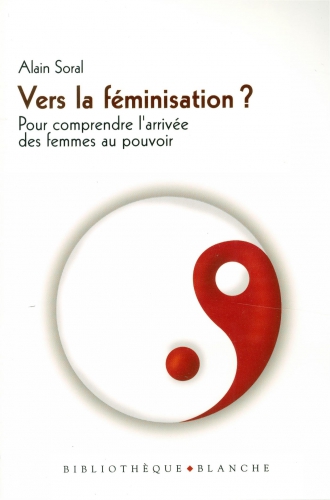 Zemmour then is also affected by a certain parochialism which was so powerful it convinced millions of Europeans to kill their kin, often enlisting Africans and Asians in the process, in the terrible Brüderkrieg of 1914-1918. He jokes on French officials presenting “Europe as a grail which is won through innumerable sacrifices” (521). But if by “Europe” we mean our “Europe,” that of our blood and spirit (and not some transient political organization), we could only rejoice at joining such a quest!
Zemmour then is also affected by a certain parochialism which was so powerful it convinced millions of Europeans to kill their kin, often enlisting Africans and Asians in the process, in the terrible Brüderkrieg of 1914-1918. He jokes on French officials presenting “Europe as a grail which is won through innumerable sacrifices” (521). But if by “Europe” we mean our “Europe,” that of our blood and spirit (and not some transient political organization), we could only rejoice at joining such a quest!
Zemmour’s attitude may be explained partly by the fact that his English, like Soral’s, seems to be rather poor (at times, one has the impression both writers are making a point of misspelling the occasional English words they use).[19] They are of that generation of French writers, raised under De Gaulle, for whom France and the Francophonie were enough.[20] France being a great nation, there is no question that a Frenchman should be required to know a foreign language to operate freely in the world. This is the splendid parochialism of a once psychologically self-confident and culturally self-sufficient nation. It has its charms and has helped preserve France’s specificity for a time, making it unusually pugnacious in its independence vis-à-vis the Anglo-Zionist world.[21] Today still, the French singularity lives on in the unique contributions to the world of a Soral, a Dieudonné, a Houellebecq, or indeed a Le Pen père. But we cannot afford political parochialism today. Whatever political organization we dream of for Europe, and I believe the nations are fundamental building blocks, we cannot think of our nationhood outside of a European consciousness.
Zemmour then has given us a highly interesting work, a veritable panorama of French decadence over the past half-century and an implicit offer, no doubt insufficient, for renewal. He provides an eloquent defense of the homogeneous French nation-state, with its strengths and weaknesses, and a critique of Jewish activism remarkable for a mainstream publication. The book marks a significant milestone in Jewish elites and the French regime’s changing and highly ambiguous attitudes towards the Front National and Islam. How significant? Time will tell. As Zemmour writes: “We have forgotten that history is a succession of strategic surprises” (402).
Notes
1. Zemmour writes: “It is not structures which forge superstructures; it’s the population – and the changes of population – which shape the environment” (95). And: “‘Demography is destiny,’ the Americans rightly say: Territorial conquest always precedes ideological, political, cultural conquest. Civilizational” (212). (In fact, “demography is destiny” appears to be from Auguste Comte.) He also quotes President Georges Pompidou at length on the futility of attempting to Americanize France: “The changing of a society would require full blood transfusion, that we expel 50 million Frenchmen and replace them with 50 million Anglo-Saxons! The French are as they are, and they will remain so. Doctors do not tell their patient: ‘Sir, you have a sanguine temperament. That is no good for me. I would heal you more easily if you had a bilious temperament.’ They take him with the temperament he has, without trying to change it, and they try to heal him, if they can” (128).
2. Soral’s masterwork, a political essay.
3. Zemmour does not mention the Identitarians and scarcely criticizes the Front National.
4. The city of La Rochelle served as major Protestant citadel during the sixteenth century Wars of Religion in France. Zemmour believes Islam’s growing presence in many French cities, splitting the country religiously along Islamic and secular-Christian lines, will lead to similar political fragmentation and civil war.
5. BHL refers to Bernard-Henri Lévy. Coblenz was a major center for aristocratic émigrés during the French Revolution, plotting to retake power with the support of foreign powers.
6. Named for the Jewish then-health minister, Simone Veil.
7. Georges Pompidou worked as the director-general of the Rothschild Bank before serving as President de Gaulle’s chief of staff and then Prime Minister, before becoming President himself in 1969.
8. The subject is too technical for me to confirm or not. In any event, the 1992 Maastricht treaty banned the new European Central Bank from directly financing states and the current situation in the Eurozone can be fairly described as usurious.
9. In France, Zemmour reports, 40-50% of French stock exchange (CAC40) shares are held by foreigners, while 85% of profit are made abroad. The “French company” decreasingly exists.
10. In this schema, all Western European oligarchies have largely defected – thinking of themselves collectively as minor appendages and collaborators of the American Empire, rather than genuinely independent actors, and individually as free-moving, selfish atoms in the Euro-Atlantic constellation – while those of Russia and China have yet to.
11. Zemmour notes that Ronald Reagan and Margaret Thatcher imposed neoliberalism by wrapping it in Anglo-American patriotism. Mitterrand in contrast “preferred to hide his abandonment of socialism and of the State behind the façade of a European mythology” (238).
12. Lamy is typical of this deracinated, apatride technocratic elite, recently declaring [5] – shades of Barbara Spectre – on the EU’s proposal of imposing refugee quotas upon the 28 member nations: “Europe does not have this culture of immigration [of the United States, Australia, and Canada] [. . .] The negotiations are going to be difficult but [refugee quotas] are a necessary step in this transformation towards of a culture of immigration, which seems inevitable, principally for demographic reasons. The European Union will lose 20 million people of working age in the next 10 years [. . .] this transformation towards a culture of immigration quotas seems to me inevitable within 10 or 20 years.” There is a special place in hell . . .
13. Whose goy members include Rupert Murdoch, Pierre Bergé, Carlos Slim . . .
14. The Vichy Regime’s militia.
15. Italicized words in English in the original.
16. See my translations on The Occidental Observer as well as an upcoming book review of Anne Kling’s work on Jewish ethnic lobbies in France. http://www.theoccidentalobserver.net/author/guillaume-durocher/ [6]
17. Zemmour describes French leaders as “sticking to the [Deutsch-]Mark like a little boy hides behind his big brother in the playground, to guarantee his protection in exchange for submission.” He also quotes in extenso Jacques Chirac’s remarkable 1978 Le Pen-like critique of European integration: “[B]ehind the mask of the technocrats’ words and jargon, they are preparing the vassalization of France [. . .]. [A] federal Europe could not avoid being dominated by American interests. [. . .] It is a fact that today this [European Economic] Community – outside of agricultural policy, which is also threatened – is tending towards being, today, nothing more than a free trade area favoring perhaps the most powerful foreign interests, but which condemns entire sectors of our industry to dismantlement, left without protection against unequal, wild competition or who decline to grant us reciprocity. [. . .] We want, as much as the others, that Europe be built. But a European Europe, where France leaders her destiny of a great nation. We say no to this vassal-France in an empire of merchants, no to a France who would abdicate today to disappear tomorrow. As always, when it comes to lessening France, the foreigners’ party is at work” (165-7).
18. Jean-Luc Mélenchon, a Socialist Freemason who later joined the far-left, sold the treaty at the time saying: “It’s the advent of the European nation, bringing peace, civilization and solidarity” (362). One can almost hear Sir Oswald Mosley! Observers do not often enough recognize the extent to which the EU has been sold to the public with implicit appeals to White identity and European ethnocentrism.
19. Zemmour writes of “racist, macho red skins,” clearly thinking of rednecks (63).
20. Practically, it also means that Zemmour and Soral’s audiences are thoroughly constrained within the French-speaking world. They cannot dream of shifting their loyalty, like so many, to Brussels, London, New York, Jerusalem, or some other part of the Euro-Atlantic constellation. They will fight for France or go down with it. This may also explain, in the case of Soral, a certain complacency and sense of kinship regarding the non-White parts of the French-speaking world.
21. I hope I will not be accused of petty-French chauvinism if I confess that I cannot think of a better hope for Europe today than to saw off the gangrenous Anglo-Saxon world as soon as possible. Not as part of that centuries-long struggle between the English and French oligarchies (eighteenth century naval and colonial wars, Napoleon’s Continental System, De Gaulle’s excluding Britain from the European Community, Mitterrand’s European currency . . .), but to emancipate Continental Europeans from the toxic cultural influence and false sense of security provided by America, a necessary step before any restoration of hard thinking and real sovereignty in Europe.
Related
Article printed from Counter-Currents Publishing: http://www.counter-currents.com
URL to article: http://www.counter-currents.com/2015/05/eric-zemmour-on-the-suicide-of-france-part-2/
URLs in this post:
[1] Image: http://www.counter-currents.com/wp-content/uploads/2015/05/la-haine.jpg
[2] Rammstein has pointed out: https://www.youtube.com/watch?v=4NAM3rIBG5k
[3] “Niggers in Paris” as the soundtrack: http://www.dailymotion.com/video/xqhrlh_french-presidential-candidate-uses-jay-z-and-kanye-s-niggas-in-paris-in-campaign-ad_music
[4] resulting video: http://www.dailymotion.com/video/xqmx4_scandale-a-sciencespo-alain-soral_news
[5] recently declaring: http://www.fdesouche.com/598253-pascal-lamy-les-quotas-limmigration-en-europe-sont-inevitables
[6] http://www.theoccidentalobserver.net/author/guillaume-durocher/: http://www.theoccidentalobserver.net/author/guillaume-durocher/
 À partir du vers du poète grec Cavafy « En attendant les barbares », Jure Vujic file l’image d’une attente rendue vaine par la présence des barbares à l’intérieur même de l’espace européen, les élites s’étant depuis bien longtemps barbarisées. C’est à un véritable examen de conscience que nous appelle Vujic en nous proposant de traquer en nous cette part de barbarie, cet assentiment coupable, qui s’est imposé et s’étend. L’origine de l’apathie des peuples européens est bien là. La colonisation du « mental, de l’imaginaire individuel et collectif européen ». Les peuples de la Vieille Europe sont devenus incapables de réagir à la gravité du réel car leur esprit demeure anesthésié par plusieurs décennies de propagande. Désarmés spirituellement et philosophiquement, privés de leurs ressorts intérieurs, les Européens n’ont plus les ressources nécessaires pour s’opposer aux nombreux assauts venus de l’extérieur.
À partir du vers du poète grec Cavafy « En attendant les barbares », Jure Vujic file l’image d’une attente rendue vaine par la présence des barbares à l’intérieur même de l’espace européen, les élites s’étant depuis bien longtemps barbarisées. C’est à un véritable examen de conscience que nous appelle Vujic en nous proposant de traquer en nous cette part de barbarie, cet assentiment coupable, qui s’est imposé et s’étend. L’origine de l’apathie des peuples européens est bien là. La colonisation du « mental, de l’imaginaire individuel et collectif européen ». Les peuples de la Vieille Europe sont devenus incapables de réagir à la gravité du réel car leur esprit demeure anesthésié par plusieurs décennies de propagande. Désarmés spirituellement et philosophiquement, privés de leurs ressorts intérieurs, les Européens n’ont plus les ressources nécessaires pour s’opposer aux nombreux assauts venus de l’extérieur.



 del.icio.us
del.icio.us
 Digg
Digg

 Thomas Edward Lawrence était farouchement hostile à la parution de son vivant des mémoires et comptes-rendus de ses aventures et opérations militaires conduites en Arabie entre 1916 et 1918. Il fit imprimer, en 1922, une édition privée qui circula dans un cercle très restreint. Lawrence estimait que certains passages des Sept Piliers étaient trop personnels, voire compromettants. Il ne souhaitait pas non plus embarrasser ses supérieurs hiérarchiques de la Royal Air Force : l’ancien colonel, héros de guerre de notoriété internationale, était alors devenu à sa demande un simple subalterne engagé sous un pseudonyme.
Thomas Edward Lawrence était farouchement hostile à la parution de son vivant des mémoires et comptes-rendus de ses aventures et opérations militaires conduites en Arabie entre 1916 et 1918. Il fit imprimer, en 1922, une édition privée qui circula dans un cercle très restreint. Lawrence estimait que certains passages des Sept Piliers étaient trop personnels, voire compromettants. Il ne souhaitait pas non plus embarrasser ses supérieurs hiérarchiques de la Royal Air Force : l’ancien colonel, héros de guerre de notoriété internationale, était alors devenu à sa demande un simple subalterne engagé sous un pseudonyme.
 Laurent Davezies est économiste. Il est professeur au Conservatoire National des Arts et Métiers. D'après le site internet du CNAM, il est le responsable pédagogique pour les enseignements sur le Territoire. Son équipe « a pour vocation de former des professionnels "généralistes" de la ville, de l'urbanisme et de l'environnement ». Il est également expert auprès de différentes institutions, organisations et collectivités (DATAR, INSEE, OCDE, …). Il publie en mars 2015 un essai d'une centaine de pages intitulé Le nouvel égoïsme territorial et sous titré Le grand malaise des nations. Ce livre est à la croisé des chemins entre la géographie, la science politique et l'économie, en particulier en ce qui concerne la fiscalité.
Laurent Davezies est économiste. Il est professeur au Conservatoire National des Arts et Métiers. D'après le site internet du CNAM, il est le responsable pédagogique pour les enseignements sur le Territoire. Son équipe « a pour vocation de former des professionnels "généralistes" de la ville, de l'urbanisme et de l'environnement ». Il est également expert auprès de différentes institutions, organisations et collectivités (DATAR, INSEE, OCDE, …). Il publie en mars 2015 un essai d'une centaine de pages intitulé Le nouvel égoïsme territorial et sous titré Le grand malaise des nations. Ce livre est à la croisé des chemins entre la géographie, la science politique et l'économie, en particulier en ce qui concerne la fiscalité.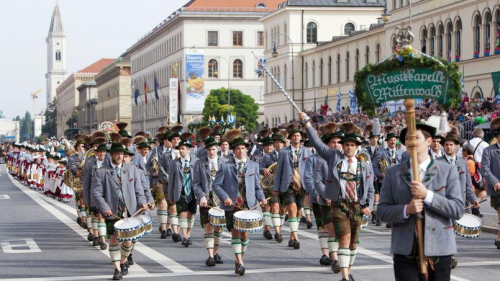
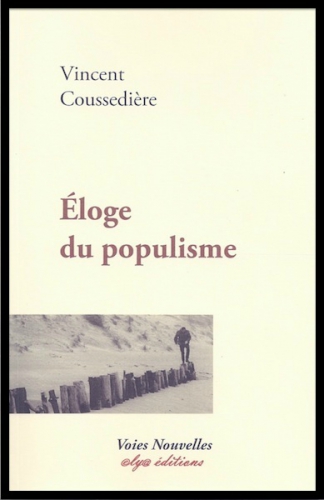 Trois ans après la parution de L’éloge du populisme par Vincent Coussedière, ce que les médias appellent le « danger » du populisme, ou la « marée noire » du populisme n’a cessé de prendre de l’ampleur. Occasion de revenir sur ce thème. Le populisme est souvent défini comme la démagogie dans la démocratie. C’est à peu de choses près la définition de Pierre-André Taguieff. Et s’il était autre chose ? Et si c’était l’irruption du peuple dans la politique, quand le peuple juge que ses dirigeants ne sont pas à la hauteur ? C’est l’hypothèse défendue par le philosophe Vincent Coussedière. Comme auparavant Chantal Delsol (
Trois ans après la parution de L’éloge du populisme par Vincent Coussedière, ce que les médias appellent le « danger » du populisme, ou la « marée noire » du populisme n’a cessé de prendre de l’ampleur. Occasion de revenir sur ce thème. Le populisme est souvent défini comme la démagogie dans la démocratie. C’est à peu de choses près la définition de Pierre-André Taguieff. Et s’il était autre chose ? Et si c’était l’irruption du peuple dans la politique, quand le peuple juge que ses dirigeants ne sont pas à la hauteur ? C’est l’hypothèse défendue par le philosophe Vincent Coussedière. Comme auparavant Chantal Delsol (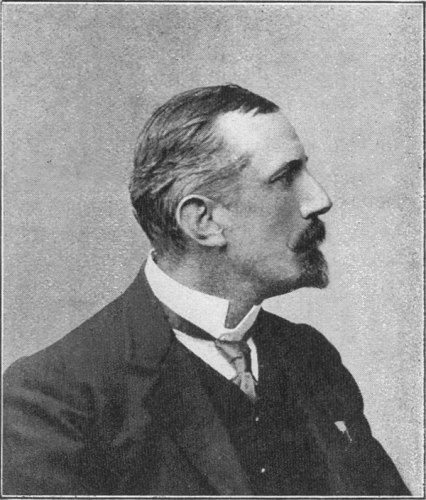
 Influencé par Nietzsche et Carlyle, Maurice Spronck publie en 1894 une contre-utopie (ou dystopie). Thomas More, Francis Bacon, Tommaso Campanella pariaient sur l’avenir ou l’onirisme pour élaborer des systèmes politiques et sociaux parfaits dans lesquels les êtres humains s’épanouiraient harmonieusement au contraire de la dystopie popularisée par les écrivains de science-fiction et d’anticipation (Eugène Zamiatine, écrivain de Nous autres, Aldous Huxley dans Le meilleur des mondes, George Orwell avec 1984, René Barjavel pour Ravage, Ray Bradbury et son Fahrenheit 451). L’an 330 de la République fait de Maurice Spronck un étonnant précurseur.
Influencé par Nietzsche et Carlyle, Maurice Spronck publie en 1894 une contre-utopie (ou dystopie). Thomas More, Francis Bacon, Tommaso Campanella pariaient sur l’avenir ou l’onirisme pour élaborer des systèmes politiques et sociaux parfaits dans lesquels les êtres humains s’épanouiraient harmonieusement au contraire de la dystopie popularisée par les écrivains de science-fiction et d’anticipation (Eugène Zamiatine, écrivain de Nous autres, Aldous Huxley dans Le meilleur des mondes, George Orwell avec 1984, René Barjavel pour Ravage, Ray Bradbury et son Fahrenheit 451). L’an 330 de la République fait de Maurice Spronck un étonnant précurseur.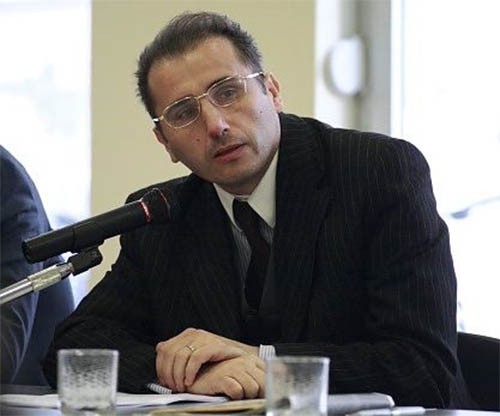

 Romain et Italien, Gabriele Adinolfi est aussi un ardent Européen et souhaite ouvrir un débat non convenu sur notre destin commun. Certes, il est le premier à pester contre cette « Europe que nous n’aimons pas (p. 41) ». Son propos déstabilise parfois le lecteur eurosceptique ou souverainiste national béat. Ainsi est-il « favorable au maintien de l’euro mais avec d’autres paramètres (p. 62) ». Dans le cadre des activités du Centre d’études Polaris qu’il a fondé, Adinolfi a en effet demandé à des économistes et à des juristes de travailler sur une Banque centrale européenne dépendante des banques nationales re-étatisés. Il envisage par exemple un « système de monnaie complémentaire (M.C.) […qui] se base sur un certificat nommé R.A.S. (reçu autoliquidant de souscription) (pp. 66 – 67) » dont l’inspirateur serait le théoricien des monnaies fondantes, Silvio Gesell.
Romain et Italien, Gabriele Adinolfi est aussi un ardent Européen et souhaite ouvrir un débat non convenu sur notre destin commun. Certes, il est le premier à pester contre cette « Europe que nous n’aimons pas (p. 41) ». Son propos déstabilise parfois le lecteur eurosceptique ou souverainiste national béat. Ainsi est-il « favorable au maintien de l’euro mais avec d’autres paramètres (p. 62) ». Dans le cadre des activités du Centre d’études Polaris qu’il a fondé, Adinolfi a en effet demandé à des économistes et à des juristes de travailler sur une Banque centrale européenne dépendante des banques nationales re-étatisés. Il envisage par exemple un « système de monnaie complémentaire (M.C.) […qui] se base sur un certificat nommé R.A.S. (reçu autoliquidant de souscription) (pp. 66 – 67) » dont l’inspirateur serait le théoricien des monnaies fondantes, Silvio Gesell.

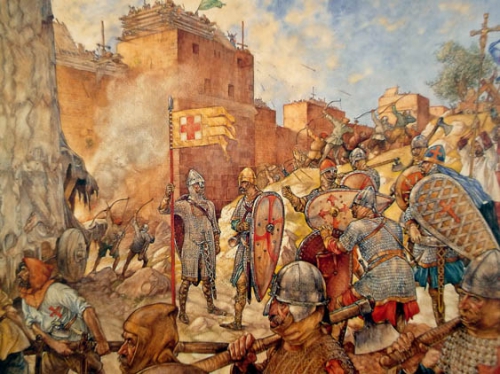



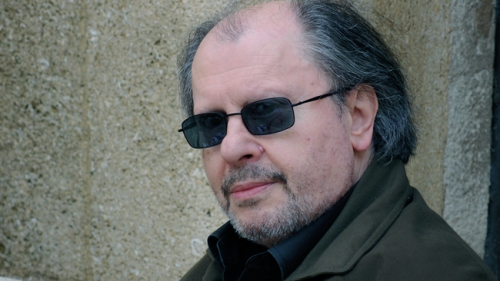
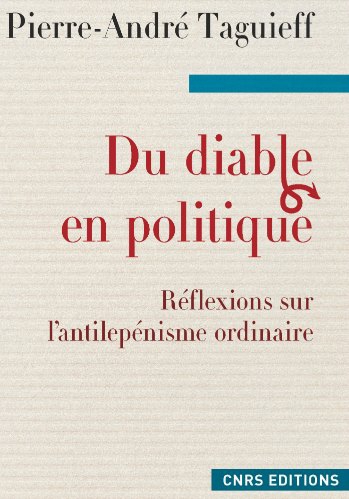 PHILITT :
PHILITT :  Conservative thinking, Karl Mannheim notes, is essentially historical thinking—in that it orients to the concrete, to ‘what is’ and ‘what has been’, instead of to ‘what ought to be’ or ‘what can be’. ‘Properly understood’, historical thinking (as créatrice de sens) reveals the ‘Providential’ design evident in the course and test of time.
Conservative thinking, Karl Mannheim notes, is essentially historical thinking—in that it orients to the concrete, to ‘what is’ and ‘what has been’, instead of to ‘what ought to be’ or ‘what can be’. ‘Properly understood’, historical thinking (as créatrice de sens) reveals the ‘Providential’ design evident in the course and test of time. The Second European Civil War of 1939-1945, however it is interpreted, resulted in a cataclysmic defeat not just for Hitler’s Germany, but for Europe, much of which, quite literally, was reduced to mounds of smoldering rumble. Then, at Yalta, adding insult to injury, the two extra-European super-powers partitioned the Continent, deprived her states of sovereignty, and proceeded to Americanize or Sovietize the ‘systems’ organizing and managing the new postwar European order.
The Second European Civil War of 1939-1945, however it is interpreted, resulted in a cataclysmic defeat not just for Hitler’s Germany, but for Europe, much of which, quite literally, was reduced to mounds of smoldering rumble. Then, at Yalta, adding insult to injury, the two extra-European super-powers partitioned the Continent, deprived her states of sovereignty, and proceeded to Americanize or Sovietize the ‘systems’ organizing and managing the new postwar European order. Les Etats-Unis ont donné l’ordre à l’Est européen d’empêcher le passage du gazoduc Southstream, abandonné en décembre 2014. Des appels quotidiens du département d’Etat à l’ambassade de France à Washington ont donné l’ordre à la France de bloquer la livraison des deux navires « Mistral » à la Russie. Les lobbyistes américains ont donné l’ordre à leurs collaborateurs de la Commission et du Parlement européens d’autoriser la culture des plantes OGM sur les terres de l’Union européenne, et l’ont obtenue (sauf décision contraire des Etats, depuis décembre 2014). Le 18 février 2015, le secrétaire d’Etat américain aux Finances, Jacob Lew, a donné l’ordre au ministre grec de l’Economie de trouver un accord avec l’Union européenne et le FMI.
Les Etats-Unis ont donné l’ordre à l’Est européen d’empêcher le passage du gazoduc Southstream, abandonné en décembre 2014. Des appels quotidiens du département d’Etat à l’ambassade de France à Washington ont donné l’ordre à la France de bloquer la livraison des deux navires « Mistral » à la Russie. Les lobbyistes américains ont donné l’ordre à leurs collaborateurs de la Commission et du Parlement européens d’autoriser la culture des plantes OGM sur les terres de l’Union européenne, et l’ont obtenue (sauf décision contraire des Etats, depuis décembre 2014). Le 18 février 2015, le secrétaire d’Etat américain aux Finances, Jacob Lew, a donné l’ordre au ministre grec de l’Economie de trouver un accord avec l’Union européenne et le FMI.




 The book was often promoted by the media alongside Michel Houellebecq’s Soumission,[7] and indeed the two works share a number of themes, namely the negative effects of individualism, sexual liberation, and Jewish influence upon French society. The main difference is in the treatment of Islam: Whereas Houellebecq sees still-patriarchal Muslims as an opportunity to re-inject the French with values of Tradition, for Zemmour Islamization is an exclusively negative phenomenon.
The book was often promoted by the media alongside Michel Houellebecq’s Soumission,[7] and indeed the two works share a number of themes, namely the negative effects of individualism, sexual liberation, and Jewish influence upon French society. The main difference is in the treatment of Islam: Whereas Houellebecq sees still-patriarchal Muslims as an opportunity to re-inject the French with values of Tradition, for Zemmour Islamization is an exclusively negative phenomenon. But there is the same problem with Zemmour’s civic nationalism as with Aron’s or Soral’s: It only works in good times and is inherently unstable, just waiting to fall into debilitating contradictions or outright collapse as soon as any group’s ethnocentrism rises, causing other groups’ ethnocentrism to rise in retaliation and the usual escalation through mimetic rivalry. When the mass of society is ethnically divided, this leads to bloody partition. When a minority ethnic group is influential at the top of society, this leads a country’s elites to be hostile to majority-group ethnocentrism and supportive of the minority group’s (e.g. Israel). A multiethnic country is an accident waiting to happen.[20]
But there is the same problem with Zemmour’s civic nationalism as with Aron’s or Soral’s: It only works in good times and is inherently unstable, just waiting to fall into debilitating contradictions or outright collapse as soon as any group’s ethnocentrism rises, causing other groups’ ethnocentrism to rise in retaliation and the usual escalation through mimetic rivalry. When the mass of society is ethnically divided, this leads to bloody partition. When a minority ethnic group is influential at the top of society, this leads a country’s elites to be hostile to majority-group ethnocentrism and supportive of the minority group’s (e.g. Israel). A multiethnic country is an accident waiting to happen.[20]
 Soral also objected to Zemmour’s choice of the word “suicide” in the title: “It’s not a suicide, it’s an attempt at murder!” One can see Soral’s point. However I think Zemmour shows the expression to be somewhat accurate because many of the worst policies were largely passed by France’s indigenous center-right conservative/liberal elite put in charge after 1945. As ever, it remains extremely difficult to isolate the impact of Jewish activism as against indigenous European and bourgeois propensities; both have clearly played a role. No doubt Matthew Heimbach’s expression of “assisted suicide” is appropriate. Zemmour summarizes the French situation thus: “Our ‘BHL-ized’ elites are returning to the old aristocratic cosmopolitanism of the eighteenth century and of Coblenz”[5] (194).
Soral also objected to Zemmour’s choice of the word “suicide” in the title: “It’s not a suicide, it’s an attempt at murder!” One can see Soral’s point. However I think Zemmour shows the expression to be somewhat accurate because many of the worst policies were largely passed by France’s indigenous center-right conservative/liberal elite put in charge after 1945. As ever, it remains extremely difficult to isolate the impact of Jewish activism as against indigenous European and bourgeois propensities; both have clearly played a role. No doubt Matthew Heimbach’s expression of “assisted suicide” is appropriate. Zemmour summarizes the French situation thus: “Our ‘BHL-ized’ elites are returning to the old aristocratic cosmopolitanism of the eighteenth century and of Coblenz”[5] (194). Zemmour also shows how the French bourgeoisie spearheaded the entrenching of neoliberal principles into international law. He cites Rawi Abdelal’s Capital Rules describing the “Paris Consensus” in which the French promoted the idea of locked-in unlimited free movement of capital and free trade as goals in and of themselves. “Globalization was first financial,” Zemmour notes (236).
Zemmour also shows how the French bourgeoisie spearheaded the entrenching of neoliberal principles into international law. He cites Rawi Abdelal’s Capital Rules describing the “Paris Consensus” in which the French promoted the idea of locked-in unlimited free movement of capital and free trade as goals in and of themselves. “Globalization was first financial,” Zemmour notes (236). Zemmour then is also affected by a certain parochialism which was so powerful it convinced millions of Europeans to kill their kin, often enlisting Africans and Asians in the process, in the terrible Brüderkrieg of 1914-1918. He jokes on French officials presenting “Europe as a grail which is won through innumerable sacrifices” (521). But if by “Europe” we mean our “Europe,” that of our blood and spirit (and not some transient political organization), we could only rejoice at joining such a quest!
Zemmour then is also affected by a certain parochialism which was so powerful it convinced millions of Europeans to kill their kin, often enlisting Africans and Asians in the process, in the terrible Brüderkrieg of 1914-1918. He jokes on French officials presenting “Europe as a grail which is won through innumerable sacrifices” (521). But if by “Europe” we mean our “Europe,” that of our blood and spirit (and not some transient political organization), we could only rejoice at joining such a quest!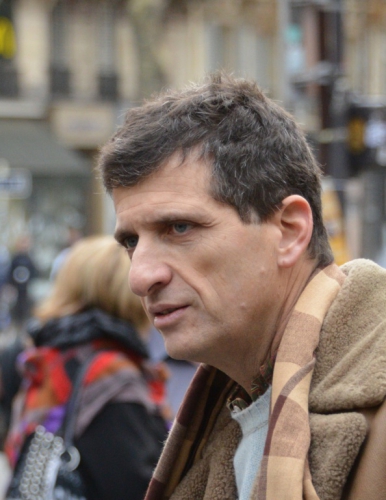
 Quoi qu'il en soit, tous ces morts sont le résultat d'un nombre incroyable de carences que Serge Federbusch souligne d'entrée, force détails à l'appui: allègement insensé de la protection de Charlie Hebdo peu de temps auparavant, étonnante inertie des services de renseignement à l'encontre des futurs assassins,
Quoi qu'il en soit, tous ces morts sont le résultat d'un nombre incroyable de carences que Serge Federbusch souligne d'entrée, force détails à l'appui: allègement insensé de la protection de Charlie Hebdo peu de temps auparavant, étonnante inertie des services de renseignement à l'encontre des futurs assassins, 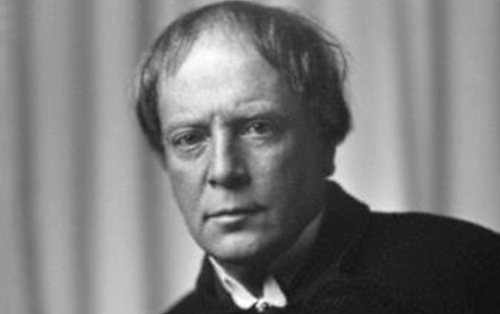
 C'est en 2013 que j'ai envoyé à Alexandrine Duhin, dirigeant la collection Mille et une nuits chez Fayard, un petit dossier exposant, en termes simples, percutants, bref, en novlangue publicitaire et en maigres éléments de langage comme il se doit, les excellentes raisons de publier à nouveaux frais l'un des meilleurs textes d'Arthur Machen,
C'est en 2013 que j'ai envoyé à Alexandrine Duhin, dirigeant la collection Mille et une nuits chez Fayard, un petit dossier exposant, en termes simples, percutants, bref, en novlangue publicitaire et en maigres éléments de langage comme il se doit, les excellentes raisons de publier à nouveaux frais l'un des meilleurs textes d'Arthur Machen,  Nous approchons de la source de la corruption, une jeune femme appelée Hélène Vaughan, qui causera plusieurs suicides et brusques chutes d'hommes dans la folie mais, une fois encore, le thème du regard interdit compte moins que celui d'une entité chaotique (si je puis dire) et originelle, «quelque chose qui [n'est] ni l'homme ni la bête, ni la vie ni la mort, mais toutes choses mêlées, l'apparence mouvante de toutes choses» (pp. 44-5) qui constitue le soubassement infernal sur lequel l'ordre s'est érigé, comme la présence de vase, à la surface d'une rivière, indique son origine profonde (3).
Nous approchons de la source de la corruption, une jeune femme appelée Hélène Vaughan, qui causera plusieurs suicides et brusques chutes d'hommes dans la folie mais, une fois encore, le thème du regard interdit compte moins que celui d'une entité chaotique (si je puis dire) et originelle, «quelque chose qui [n'est] ni l'homme ni la bête, ni la vie ni la mort, mais toutes choses mêlées, l'apparence mouvante de toutes choses» (pp. 44-5) qui constitue le soubassement infernal sur lequel l'ordre s'est érigé, comme la présence de vase, à la surface d'une rivière, indique son origine profonde (3).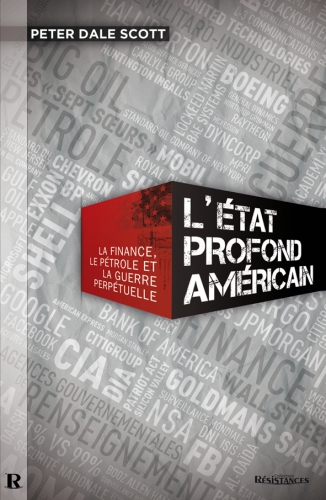 Docteur en sciences politiques et ancien diplomate, le Canadien Peter Dale SCOTT est l’auteur de nombreux ouvrages (dont
Docteur en sciences politiques et ancien diplomate, le Canadien Peter Dale SCOTT est l’auteur de nombreux ouvrages (dont  L’État profond constitue aujourd’hui un système quasi institutionnalisé dans des agences (comme la CIA et la NSA) qui échappent au contrôle démocratique. Mais il ne se limite pas à ces services secrets, et l’auteur décrit notamment l’influence excessive d’entreprises privées telles que Booz Allen Hamilton (l’ex-employeur d’Edward Snowden) et la SAIC, 70 % des budgets du Renseignement aux États-Unis étant aujourd’hui sous-traités.
L’État profond constitue aujourd’hui un système quasi institutionnalisé dans des agences (comme la CIA et la NSA) qui échappent au contrôle démocratique. Mais il ne se limite pas à ces services secrets, et l’auteur décrit notamment l’influence excessive d’entreprises privées telles que Booz Allen Hamilton (l’ex-employeur d’Edward Snowden) et la SAIC, 70 % des budgets du Renseignement aux États-Unis étant aujourd’hui sous-traités.
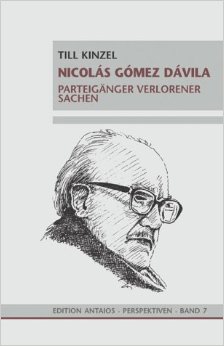 Der Kolumbianer Nicolás Gómez Dávila (1913–1994) bezeichnete sich selbst als »Reaktionär«. Sein Denken ist ein Gegenentwurf zur Neuzeit und Aufklärung. Gómez Dávila stellt alles auf den Prüfstand, was manchem Zeitgenossen lieb und teuer geworden ist. »Automatismen demontieren« kann daher als ein Motto seines Denkens gelten. Zweifellos gehört der Autor zu den bedeutenden politischen Theologen des 20. Jahrhunderts. Daß sein Werk lange Zeit nur einem kleinen Kreis zugänglich gewesen ist, liegt vor allem daran, daß Gómez Dávila sich nie besonders um die Verbreitung gekümmert hat. In den letzten Jahren erleben seine Werke aber immer größere Beachtung.
Der Kolumbianer Nicolás Gómez Dávila (1913–1994) bezeichnete sich selbst als »Reaktionär«. Sein Denken ist ein Gegenentwurf zur Neuzeit und Aufklärung. Gómez Dávila stellt alles auf den Prüfstand, was manchem Zeitgenossen lieb und teuer geworden ist. »Automatismen demontieren« kann daher als ein Motto seines Denkens gelten. Zweifellos gehört der Autor zu den bedeutenden politischen Theologen des 20. Jahrhunderts. Daß sein Werk lange Zeit nur einem kleinen Kreis zugänglich gewesen ist, liegt vor allem daran, daß Gómez Dávila sich nie besonders um die Verbreitung gekümmert hat. In den letzten Jahren erleben seine Werke aber immer größere Beachtung. 

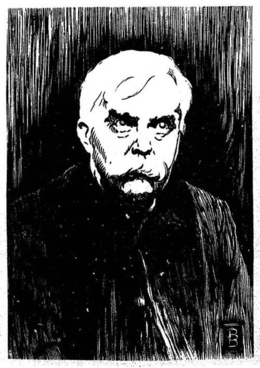 C'est à la date du 9 janvier 1900 que Léon Bloy recopie dans son Journal Le Siècle des Charognes, paru le 4 février de la même année dans le cinquième, et dernier, numéro de Par le scandale. Le texte est dédié à «quelqu'un» sur lequel Bloy ne souffle mot, puisqu'il a dû cesser à cette date d'être l'ami du mendiant ingrat, en fait un certain Édouard Bernaert, poète belge qui fut ami de Léon Bloy, et créateur de l'éphémère revue en question.
C'est à la date du 9 janvier 1900 que Léon Bloy recopie dans son Journal Le Siècle des Charognes, paru le 4 février de la même année dans le cinquième, et dernier, numéro de Par le scandale. Le texte est dédié à «quelqu'un» sur lequel Bloy ne souffle mot, puisqu'il a dû cesser à cette date d'être l'ami du mendiant ingrat, en fait un certain Édouard Bernaert, poète belge qui fut ami de Léon Bloy, et créateur de l'éphémère revue en question. Comme il serait réjouissant, tout de même, qu'un moderne contempteur de baudruches pieuses, crevant de honte à l'idée que, lui-même catholique et pourtant «forcé d'obéir au même pasteur» (p. 18) que les ouailles dégoulinantes de mansuétude, devrait bien finir par reconnaître que les catholiques français, ces cochons, sont bel et bien ses frères ou, du moins, précise immédiatement Léon Bloy, ses «cousins germains» (p. 17), comme il serait drôle et intéressant qu'un tel butor évangélique ose affirmer que les ouvrages publicitaires de Fabrice Hadjadj ne sont rien de plus qu'une amélioration toute superficielle du catéchisme délavé qu'il a pieusement écouté (d'une seule oreille) lorsqu'il était petit, ou bien que
Comme il serait réjouissant, tout de même, qu'un moderne contempteur de baudruches pieuses, crevant de honte à l'idée que, lui-même catholique et pourtant «forcé d'obéir au même pasteur» (p. 18) que les ouailles dégoulinantes de mansuétude, devrait bien finir par reconnaître que les catholiques français, ces cochons, sont bel et bien ses frères ou, du moins, précise immédiatement Léon Bloy, ses «cousins germains» (p. 17), comme il serait drôle et intéressant qu'un tel butor évangélique ose affirmer que les ouvrages publicitaires de Fabrice Hadjadj ne sont rien de plus qu'une amélioration toute superficielle du catéchisme délavé qu'il a pieusement écouté (d'une seule oreille) lorsqu'il était petit, ou bien que